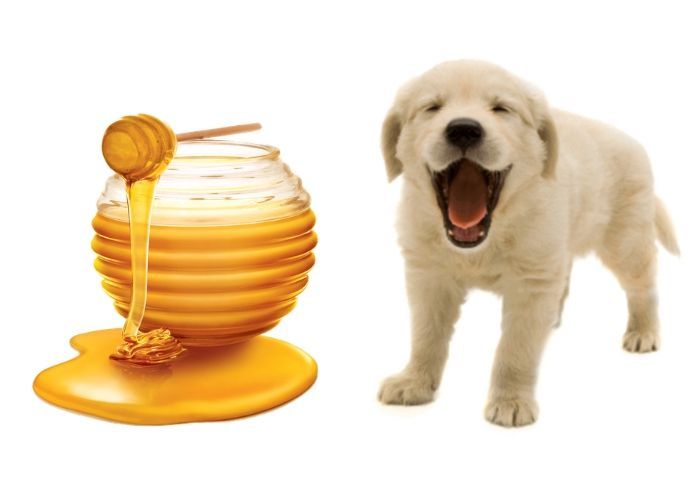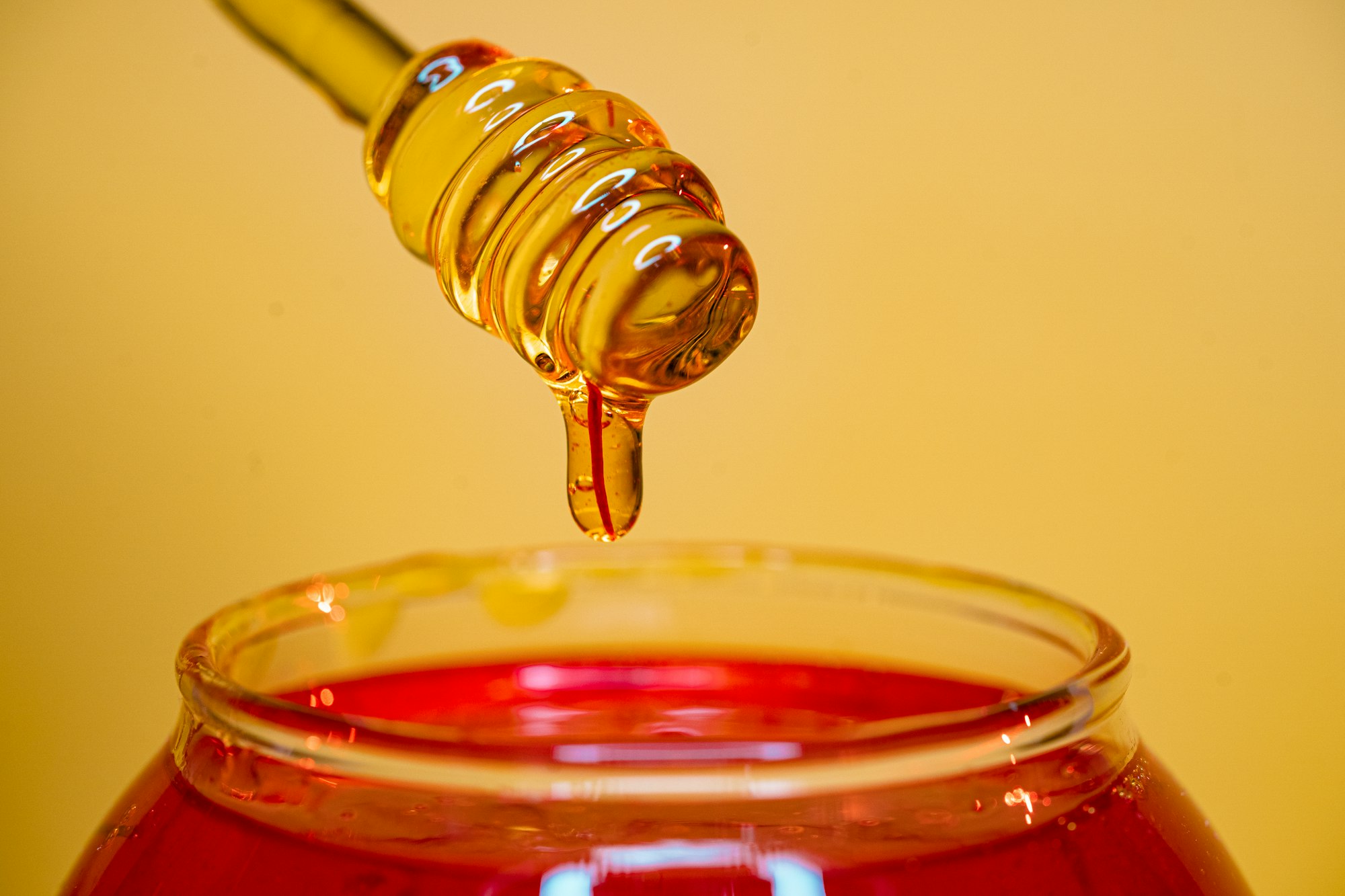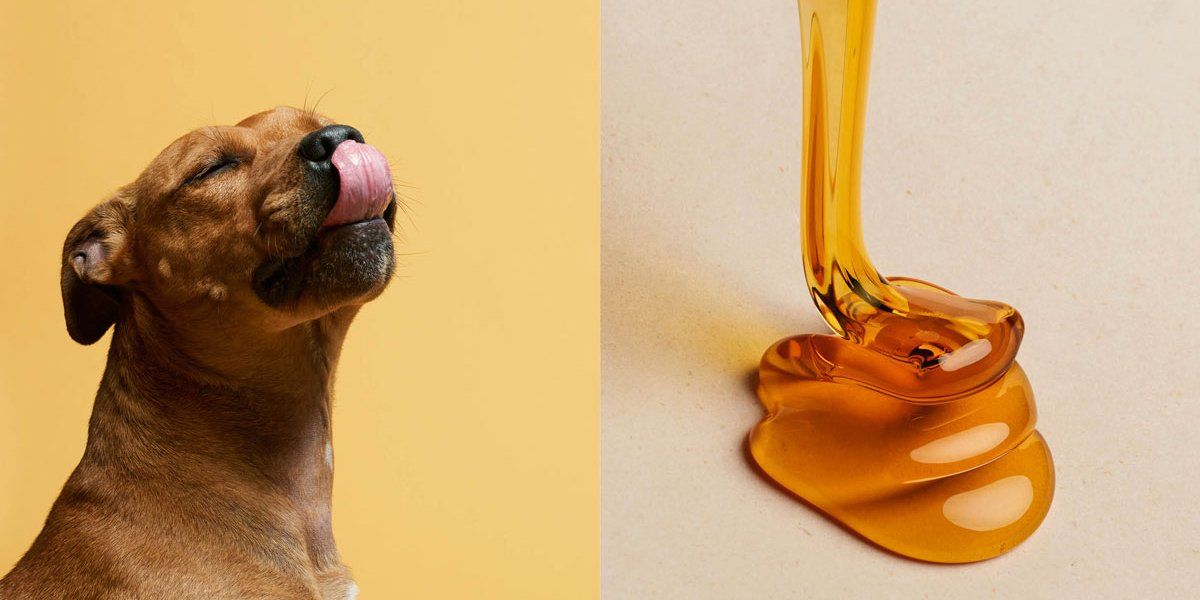If you're a dog owner, you're probably no stranger to the joys of sharing food with your furry friend. From special treats to table scraps, it's hard to resist those pleading eyes. But when it comes to honey, can you safely indulge your dog's sweet tooth? In this article, we'll dive into the question: Is honey safe for dogs? Let's explore the potential benefits and risks, debunk some common myths, and provide you with all the information you need to make an informed decision.

Honey has been cherished by humans for its natural sweetness and potential health benefits for centuries. It's rich in antioxidants, vitamins, and minerals. But what about dogs? Can they enjoy the same benefits from this golden nectar?
Understanding Honey
Honey, that luscious and golden liquid, is a natural marvel created by the diligent work of bees. These incredible insects gather nectar from flowers, transform it through enzymatic processes, and store it in their hives. The result? A sweet and viscous substance that has captivated human taste buds for centuries.
But what makes honey so special, and can our canine companions partake in its wonders too? Understanding honey's composition and benefits is key to determining whether it's a suitable treat for our furry friends.
Nutritional Value of Honey for Dogs
The allure of honey stretches far beyond its delectable sweetness. This golden elixir, crafted by bees from flower nectar, boasts a diverse nutritional profile that has captivated humans for centuries. But what about our four-legged friends? Can they reap the benefits of this natural wonder too?
The Basics of Honey
Honey is a complex blend of sugars, enzymes, vitamins, and minerals, all intricately woven together by the remarkable alchemy of bees. The primary sugars found in honey are glucose and fructose, which provide a quick burst of energy. This can be particularly appealing for active dogs in need of a natural pick-me-up.
Antioxidant Power
Antioxidants, those revered defenders against oxidative stress, are also present in honey. These compounds play a vital role in neutralizing harmful molecules known as free radicals, contributing to overall well-being. While dogs naturally produce their antioxidants, incorporating foods rich in antioxidants, such as honey, can be beneficial for their health.

Enzymes and Trace Nutrients
Honey's treasure trove of enzymes and trace nutrients offers potential health benefits. However, it's important to note that dogs have unique nutritional requirements compared to humans. While honey can provide a sprinkle of additional nutrients, it's not a substitute for a well-balanced dog food that fulfills all their dietary needs.
Balancing Act
While honey does contain valuable components, it's crucial to consider its sugar content. Dogs process sugars differently from humans, and overindulgence can lead to obesity and related health issues. Additionally, the natural sugars in honey can impact dogs' blood sugar levels, making it especially important for diabetic dogs to consume honey with caution and under veterinary supervision.
Honey's nutritional allure is undeniable, with its blend of sugars, antioxidants, enzymes, and trace nutrients. While dogs can potentially benefit from the goodness honey offers, responsible consumption is key. Incorporating small amounts of honey into your dog's diet, alongside regular vet check-ups and balanced dog food, can contribute to their overall health and happiness. Remember, moderation and mindfulness are the keys to unlocking the potential benefits of honey for your beloved canine companion.
Benefits of Honey for Dogs
As you ponder sharing a dollop of honey with your furry companion, you may wonder about the potential perks. While dogs have different dietary needs than humans, there are indeed some benefits to consider when it comes to offering honey to your four-legged friend.

Soothing Properties
Honey possesses a natural smoothness that can work wonders for dogs with irritated throats or occasional coughs. The soothing quality of honey can provide relief, just as it does for humans. A spoonful of honey might help coat the throat and alleviate discomfort, making it a potentially helpful remedy for minor irritations.
Nutritional Boost
Incorporating small amounts of honey into your dog's diet can offer a natural energy boost. The carbohydrates and sugars present in honey can provide a quick source of energy, which might come in handy during playtime or outdoor activities. However, it's important to remember that good family dogs primarily derive energy from their regular balanced diet.
Wound Healing
Honey's unique antibacterial properties have been appreciated by humans for their potential to aid wound healing. Interestingly, this property can extend to our canine companions as well. When applied topically to minor cuts or abrasions, honey can create an environment that discourages bacterial growth, thus promoting the healing process. Nevertheless, consulting your veterinarian before using honey as a topical treatment is advised.
While the allure of sharing a sweet treat with your dog is undeniable, understanding the potential benefits and considerations is essential for responsible pet ownership. The soothing properties, nutritional boost, and wound-healing potential of honey can indeed offer some advantages to dogs. However, moderation, consultation with a veterinarian, and aligning honey consumption with your dog's individual dietary needs are key factors to keep in mind. As with any aspect of your dog's diet, their well-being is the ultimate priority.
Risks of Honey for Dogs
While honey offers potential benefits, it's important to be aware of the potential risks and considerations associated with introducing it into your dog's diet. As a responsible pet owner, understanding these aspects will help you make informed decisions regarding your dog's well-being.
Sugar Content
Honey is renowned for its natural sweetness, which comes from its sugar content. While this can be a delightful treat for humans, it's crucial to remember that dogs have different dietary needs. Excessive consumption of honey can lead to an influx of sugars in your dog's system, potentially resulting in weight gain, dental issues, and even diabetes. Therefore, moderation is key. Offering honey as an occasional treat rather than a regular indulgence can help mitigate these risks.
Allergic Reactions
Just like humans, dogs can develop allergies to certain foods, including honey. When introducing honey to your dog's diet for the first time, keep a close eye on any signs of adverse reactions. These might include itching, hives, swelling, or gastrointestinal distress. If you notice any of these symptoms, it's important to discontinue the use of honey and consult a veterinarian.
How to Safely Feed Honey to Your Dog
If you've decided to share the sweet delight of honey with your beloved canine companion, it's important to do so safely and responsibly. Following these guidelines can help ensure that your dog enjoys the benefits of honey without any adverse effects.
1. Choose High-Quality Honey
Opt for high-quality, pure honey. Avoid honey blends or products with added sugars, as these might not offer the same potential benefits and could pose unnecessary risks to your dog's health.
2. Start Small
When introducing honey to your dog's diet for the first time, begin with a small amount. A teaspoon mixed into their food is a good starting point. This allows you to gauge how your dog reacts to honey without overwhelming their system.
3. Observe for Reactions
After introducing honey, keep a close eye on your dog for any adverse reactions. Watch for signs of itching, swelling, digestive discomfort, or any unusual behavior. If you notice any of these symptoms, discontinue the use of honey and consult your veterinarian.
4. Gradual Incorporation
To help your dog's digestive system adjust, mix honey into their regular food. Gradual incorporation reduces the likelihood of stomach upset and makes it easier for your dog to tolerate this new addition to their diet.
Moderation Is Key
While honey offers potential benefits and can be a tempting treat for your furry friend, it's important to remember the principle of moderation. Just like with any indulgence, excessive consumption of honey can lead to unintended health issues for your dog.

The high sugar content in honey means that overdoing it can contribute to weight gain, dental health problems, and even diabetes in dogs. To ensure that your dog enjoys the benefits of honey without any negative consequences, limit the amount you offer. Occasional small amounts can be a delightful addition to your dog's diet, but making it a regular occurrence should be approached with caution.
Always consider your dog's overall diet and nutritional needs. If you're uncertain about how much honey is appropriate for your specific breed and size of dog, consult your veterinarian. They can provide guidance tailored to your dog's requirements.
As a responsible and caring happy dog owner, your dog's health is your priority. By embracing the principle of moderation and seeking expert advice from your veterinarian, you can navigate the realm of honey and ensure that your dog's diet remains balanced and beneficial. With the right approach, your furry companion can enjoy the occasional spoonful of honey as a delightful treat while staying on the path to optimal health.
Consulting Your Vet
When it comes to making decisions about your dog's diet and health, your veterinarian is an invaluable resource. Before introducing any new food, including honey, into your dog's routine, it's advisable to seek professional guidance.
Your veterinarian possesses the expertise to evaluate your dog's health status, dietary needs, and potential sensitivities. They can provide recommendations on whether honey is suitable for your dog and, if so, how to incorporate it safely and effectively.
If your dog has existing medical conditions, such as diabetes or allergies, consulting your vet becomes even more crucial. They can advise you on whether honey is compatible with your dog's condition and suggest appropriate portion sizes.
Remember that your veterinarian's insights are based on both their medical knowledge and their understanding of your dog's unique needs. By working together, you can make informed decisions that contribute to your dog's well-being and happiness.
Common Myths About Honey and Dogs
In the world of pet care and nutrition, myths and misconceptions can often cloud our judgment. When it comes to sharing honey with your canine companion, it's essential to separate fact from fiction. Let's debunk some common myths and shed light on the truth.
Myth 1: Raw Honey Is Always Better
Raw honey has gained a reputation for being superior due to its minimal processing. While raw honey can indeed contain additional nutrients and enzymes, it's not a blanket recommendation for dogs. Both raw and processed honey can be safe for dogs, but raw honey might also contain traces of pollen that could trigger allergies. The choice between raw and processed honey depends on your dog's individual sensitivities and health needs.
Myth 2: Honey Can Replace Medical Treatment
Honey's natural antibacterial and soothing properties are remarkable, but it's important to understand its limitations. While honey can complement certain medical treatments, it should never be used as a replacement for professional veterinary care. If your dog has a medical condition, consult your veterinarian for appropriate treatment and guidance.

Myth 3: All Dogs Can Consume Honey
Just as humans can have allergies or sensitivities to specific foods, so can dogs. While many dogs can safely enjoy honey, there are exceptions. Some dogs may be allergic to components in honey or might have difficulty digesting it. Always introduce honey cautiously and monitor your dog's response.
Myth 4: Honey Can Cure All Ailments
While honey does have potential health benefits, it's not a magical cure for all ailments. Claims that honey can cure serious medical conditions or replace prescribed medications are unfounded. Honey can be a supportive addition to your dog's diet, but it's essential to maintain realistic expectations.
Myth 5: Dogs Can Consume Unlimited Honey
Remember the old saying, "Too much of a good thing"? The same applies to honey. Even though honey has some beneficial properties, excessive consumption can lead to health issues due to its sugar content. Overindulgence can contribute to weight gain, dental problems, and other complications. Always offer honey to your dog in moderation.
As with any aspect of your dog's health and well-being, it's crucial to be well-informed and guided by accurate information. Myths about honey and its effects on dogs can be misleading. By debunking these myths and understanding the reality, you can make informed decisions about whether and how to incorporate honey into your dog's diet. Always prioritize your dog's health and consult your veterinarian for personalized advice when in doubt.
Conclusion
So, is honey safe for dogs? Yes, it can be safe and even beneficial when given in moderation and under the guidance of a veterinarian. Honey's natural properties can offer some health advantages, but it's crucial to be mindful of its sugar content and potential allergic reactions. Before introducing honey into your dog's diet, consult your vet to ensure it aligns with their individual health needs.
FAQs
Q1: Is raw honey safer for dogs than processed honey?
- Raw and processed honey can both be safe, but raw honey may contain allergens.
Q2: Can diabetic dogs consume honey?
- It's generally not recommended, as honey is high in sugars. Consult your vet for suitable options.
Q3: How should I introduce honey to my dog's diet?
- Start with a small amount mixed into their food. Monitor for any adverse reactions.
Q4: Are there alternatives to honey for dogs?
- Yes, alternatives include coconut oil or small amounts of fruits like apples or berries.
Q5: Can puppies eat honey?
- Puppies have delicate digestive systems. It's best to avoid introducing honey until they're older.




